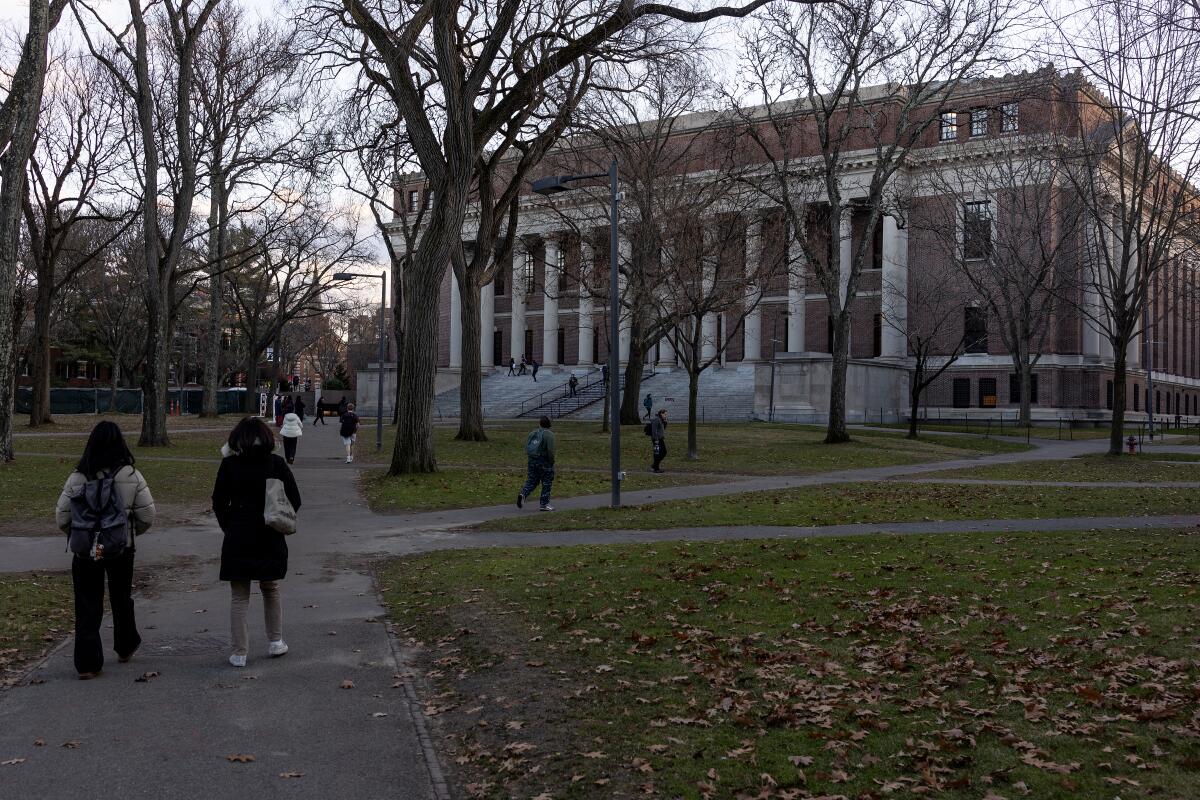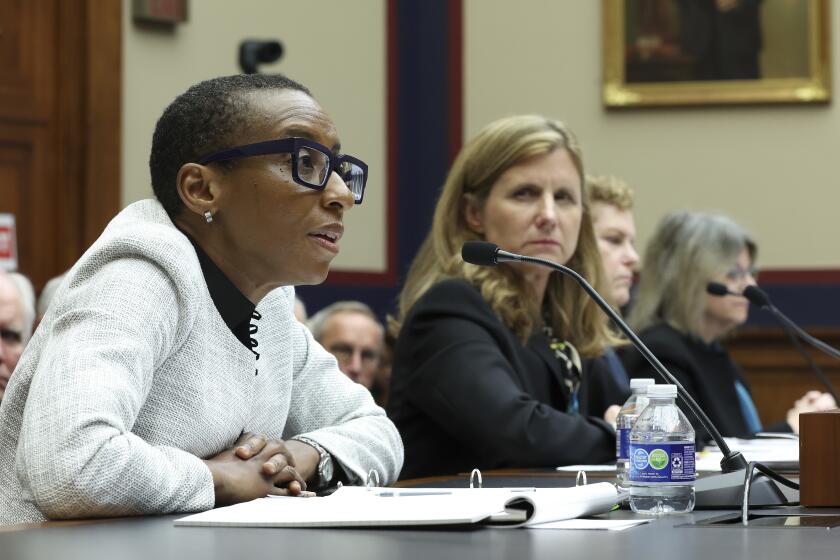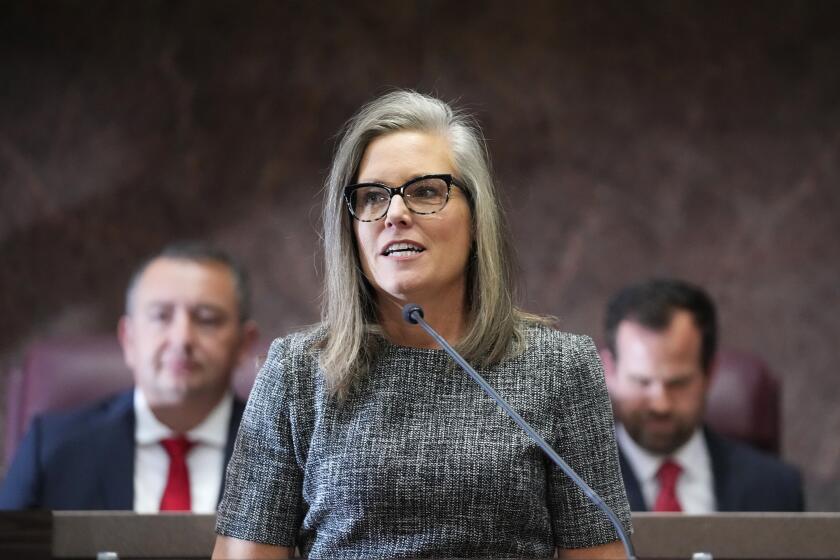Column: Have colleges lost their way? Yes, but don’t blame ‘wokeness’

- Share via
Believe it or not, one recent divisive week in Washington did manage to produce a cause on which 303 members of the House could agree: condemning the presidents of the University of Pennsylvania, MIT and Harvard.
In between impeachment talk and the battle for Ukraine funding, the House passed a resolution calling out antisemitism on college campuses as well as the testimony from the university presidents who participated in a congressional hearing earlier this month.
One of them, Liz Magill, has already resigned as president of the University of Pennsylvania. Harvard’s Claudine Gay and MIT’s Sally Kornbluth have both received support from their schools and appear safe for the moment. The three found themselves in hot water for not explicitly saying that calls for genocide of Jews would violate campus codes of conduct.
Opinion Columnist
LZ Granderson
LZ Granderson writes about culture, politics, sports and navigating life in America.
Since Hamas attacked Israel in October, university administrators and educators have struggled to find the balance between decency and free speech. Protests in support of the people of Gaza are being interpreted as pro-Hamas and anti-Israel. There also are unequivocal displays of antisemitism. No wonder campuses make for such rich political fodder.
But it is misguided to call the presidents’ equivocation a sign that our campuses are too political. It’s certainly a stretch to imagine that somehow diversity is to blame, as critics such as investor Bill Ackman have implied by suggesting that the administrators’ failings are related to their sex or race.
First, universities have always been political. What do you think segregation was? Why weren’t women allowed? This notion that the congressional hearing exposed some great surprise is political theater at its worst.
Universities must keep students safe. But a broad new rule prohibiting ‘advocacy of genocide’ would not protect students and could be used against any group.
The criticism is all part of a larger bid to dismantle the attributes of diversity in general and on campus specifically. That’s why the question of merit arises from affirmative action programs, not from legacy admissions or the power of the donor class.
During a monologue recently, CNN’s Fareed Zakaria said our universities have migrated from “centers of excellence to institutions pushing political agendas” — as if America’s education system in the 1960s welcomed integration with open arms. Or as if campus antiwar protests and the Kent State shooting didn’t happen in the 1970s.
To a certain kind of educated younger audience, the modern state of Israel looks a lot like yet another byproduct of European imperialism.
The answers the college presidents provided failed because they were trying to give nuance to yes-or-no queries. These administrators weren’t serving some great hidden agenda. They were just trying to protect their institutions and themselves.
This is what wealthy universities primarily do now. That ought to be obvious from the size of the endowments of schools such as Harvard and MIT, along with the exorbitant costs of attendance and the crippling debt inflicted on so many who attend. The agenda is self-serving socioeconomic exclusion. Given the history of this country, that is an agenda that is usually accompanied by race and gender exclusion.
Comedian Mike Birbiglia once said a joke only works if everyone agrees on the premise. In this example, the resolution passed in the House because 303 members from both sides of the aisle agreed that the answers given by the presidents were unacceptable. But some critics of diversity are taking the hearing in a direction it does not belong.
Go after the college presidents for their answers regarding the code of conduct. But if elected officials are so interested in the impact of politics on our college campuses, take a look at who is giving the money and why. Ask why universities are hoarding wealth while students rack up debt.
Racism inspired the explosion of private religious schools after Brown vs. Board of Education in 1954. Cost to taxpayers may be their undoing.
There’s way more meat on that bone.
Amway founder Richard DeVos once threatened to withhold millions of dollars from Grand Valley State University in Michigan if the school followed through with its plans to offer benefits to same-sex partners. The university backed away from the move. That was back in 2000. If that last name sounds familiar, it should. His daughter-in-law Betsy later became secretary of education despite a lack of qualifications.
If you have a problem with what the presidents said, I’m with you. But their answers didn’t arise from diversity culture. These administrators were playing it safe and putting institutions ahead of ideals. That’s not new on American campuses.
More to Read
A cure for the common opinion
Get thought-provoking perspectives with our weekly newsletter.
You may occasionally receive promotional content from the Los Angeles Times.















